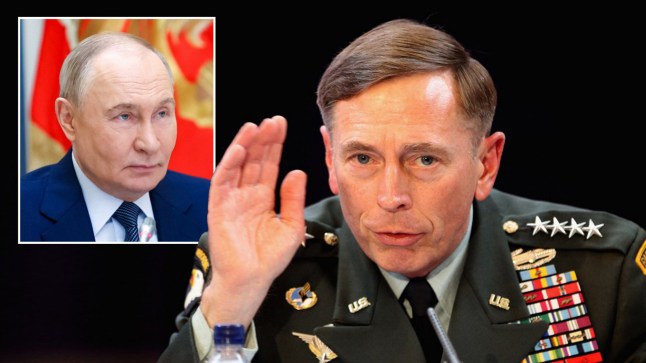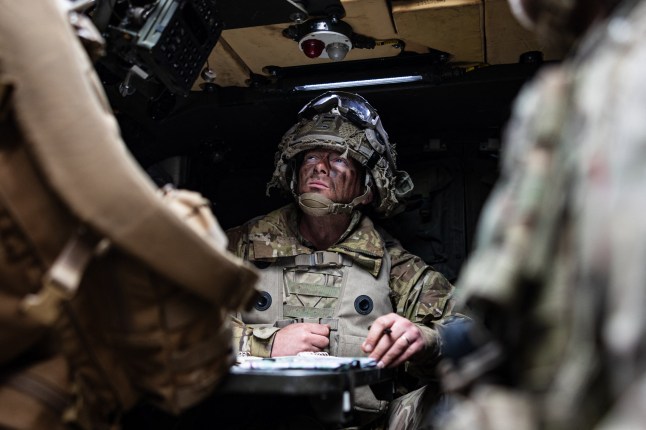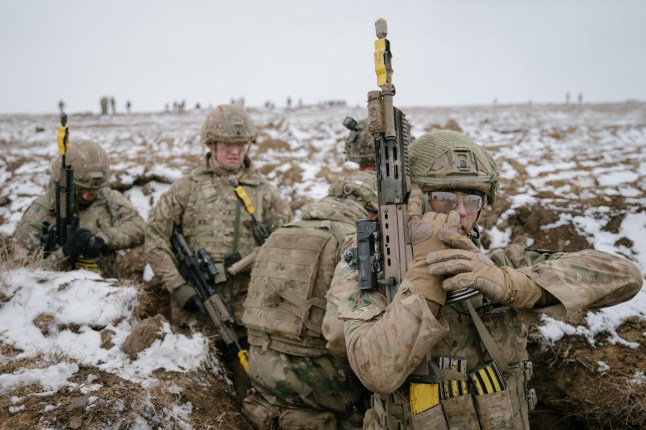Ex-CIA chief reveals where in Europe he thinks Putin will invade next

An ex-CIA chief has delivered a chilling forecast on Vladimir Putin’s next invasion target if his war in Ukraine drags on.
David Petraeus, a retired US Army general who served as a commander in both Iraq and Afghanistan, sounded the alarm that Russia is preparing to invade a Nato nation next.
He revealed that the Kremlin could launch an incursion into the Baltics to test whether the West would back down before bearing the cost – or as a precursor to a wider offensive.
Lithuania, the veteran warned, is particularly exposed to Putin’s quest to resurrect the Soviet empire.
Speaking at the Policy Exchange think-tank in London, Petraeus said: ‘Once [Ukraine is] done, you are going to see Russians focus on one of the Baltic states.
‘Lithuania has featured prominently in Putin’s speeches – and we should be listening.

‘We should have listened a lot more when he answered that question about what was the worst geopolitical catastrophe of the 20th century… and his response was the dissolution of the Soviet Union.
‘That gives you an insight into Putin’s grievance-filled revisionist history.’
Throughout Russia’s invasion of Ukraine, the Baltics have been warned about getting caught in the crosshairs.
Lithuania’s government is also taking the threat seriously. Conscription was reinstated in 2015 and, in January, it committed to spending between 5% and 6% of its GDP on defence annually until at least 2030.
Focusing on the current US administration and its impact on the war, the general insisted that Donald Trump had given Putin way too many ‘second chances’ and indulged behaviour that was ‘absolutely crazy’.

He said that such indulgence has weakened the West’s moral clarity and emboldened the dictator.
Russia’s eventual aim, Petraeus said, was to topple Volodymyr Zelensky in order to ‘install a puppet leader and to control all of Ukraine’.
In his speech, the general also criticised the former Biden administration for repeatedly arming Ukraine ‘too little, too late’.
Whether it was F-16 supersonic fighter jets, long-range rocket systems or cluster munitions, the White House has been locked in a cycle of hesitation followed by concession.
Petraeus stressed: ‘It was very unhelpful for the Ukrainians to go through the process, where each time they would ask for it [weapons], but be told no or a maybe and then eventually get it – instead of the swift and decisive action which would have been so much more helpful.
‘The bottom line is that we should have done so much for the Ukrainians that they could change the dynamic on the battlefield to one that showed Moscow they can not achieve additional gains…
‘If we want to get Russia negotiating seriously, they have to be convinced that they cannot achieve incremental gains.’
Get in touch with our news team by emailing us at webnews@metro.co.uk.
For more stories like this, check our news page.




